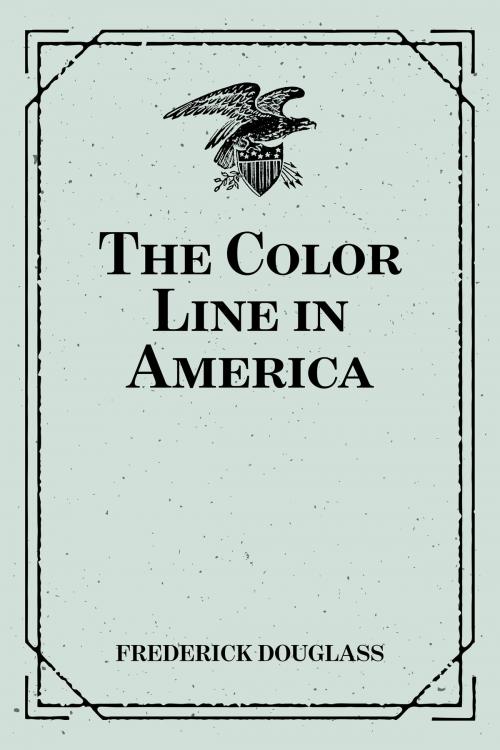The Color Line in America
Nonfiction, History, Americas, United States, Civil War Period (1850-1877), 19th Century, Biography & Memoir| Author: | Frederick Douglass | ISBN: | 9781518338434 |
| Publisher: | Krill Press | Publication: | December 16, 2015 |
| Imprint: | Krill Press | Language: | English |
| Author: | Frederick Douglass |
| ISBN: | 9781518338434 |
| Publisher: | Krill Press |
| Publication: | December 16, 2015 |
| Imprint: | Krill Press |
| Language: | English |
With the possible exception of Dr. Martin Luther King, Jr., no African American has been more instrumental in the fight for minorities’ civil rights in the United States than Frederick Douglass 1818–1895), an American social reformer, orator, writer and statesman. His list of accomplishments would be impressive enough even without taking into account the fact that he was born into slavery.
After escaping from slavery, Douglass became a leader of the abolitionist movement, gaining note for his dazzling oratory and antislavery writing. He stood out as the living embodiment of an intellectual former slave, the antithesis of slaveholders’ arguments that blacks were an inferior race. Douglass remained active in the fight for civil rights and abolition throughout the Civil War and Reconstruction, urging Lincoln to let black men enlist in the Union. As Douglass constantly stated, nobody had more to fight for in the Civil War than black men.
Douglass continued his advocacy all the way until his death in 1895. Douglass was a firm believer in the equality of all people, advocating on behalf of blacks, women, immigrants and even Native Americans. Douglass famously said, "I would unite with anybody to do right and with nobody to do wrong."
**Of all his speeches and writings, his most famous are his autobiographies. **
With the possible exception of Dr. Martin Luther King, Jr., no African American has been more instrumental in the fight for minorities’ civil rights in the United States than Frederick Douglass 1818–1895), an American social reformer, orator, writer and statesman. His list of accomplishments would be impressive enough even without taking into account the fact that he was born into slavery.
After escaping from slavery, Douglass became a leader of the abolitionist movement, gaining note for his dazzling oratory and antislavery writing. He stood out as the living embodiment of an intellectual former slave, the antithesis of slaveholders’ arguments that blacks were an inferior race. Douglass remained active in the fight for civil rights and abolition throughout the Civil War and Reconstruction, urging Lincoln to let black men enlist in the Union. As Douglass constantly stated, nobody had more to fight for in the Civil War than black men.
Douglass continued his advocacy all the way until his death in 1895. Douglass was a firm believer in the equality of all people, advocating on behalf of blacks, women, immigrants and even Native Americans. Douglass famously said, "I would unite with anybody to do right and with nobody to do wrong."
**Of all his speeches and writings, his most famous are his autobiographies. **















